All Things Bugs is the world’s leading innovator in the insect industry. We develop sustainable, eco-friendly technologies from insects to improve food security and health. Insects make up the largest, most diverse group of organisms on Earth. They are the most sustainable protein source on the planet, beating out other animal and even plant protein sources! They require far fewer resources such as land, water, and feed to produce than cows (beef), pigs (pork), chickens, dairy, and even most plant crops! However, very little has been done to utilize insects for the benefit of people and our planet. Thus, All Things Bugs capitalizes on this Low-Crawling Fruit through research, products, and services in 4 key areas: 1) Food product development, 2) Insect Processing and Ingredients, 3) Cutting Edge Insect Farming Automation and 4) Insect Genomics and Genetic Engineering.
As the world’s first wholesale provider of insect-based food ingredients, we manufacture the highest quality cricket powder in the industry using our patented spray drying process.
Click here to learn more about our Griopro® brand cricket powder–available retail for home use or wholesale!

All life on earth is connected. Recent horrific reports from IPCC (Intergovernmental Panel on Climate Change), IPBES (Intergovernmental Science-Policy Platform on Biodiversity and Ecosystem Services), UN (United Nations) and other organizations and agencies demonstrate historic levels of biodiversity loss and climate change driven by a rapidly growing human population. Given these realities, it is now more important than ever to reduce human consumption from the earth and its ecosphere.
In the face of climate change, livestock diseases, droughts and human population expansion, development of protein diversity is critical to food security. A substantial share of these major issues is the direct result of protein production. As the human population grows and developing nations become more affluent, demand for animal protein continues to grow rapidly. Yet, current sources of protein are unsustainable. Already 70% of agricultural land (HALF of land on Earth) is used for livestock. UN FAO says 75% of food comes from only 12 plant, 5 animal species. Such reliance on a small segment of biodiversity is risky, as a disease or other production issue of one species could result in devastating food supply problems. Diversification of our food supply is critical for food security and the preservation of life on earth.
Insects offer our most promising solution to protein sustainability. There are over 1 million species of insects described, 4-30 million estimated and 2,000 used as food. Cultivation of insects as sustainable food ingredients and for biopharmaceutical solutions is creating a new class of commodities including protein, oil, fiber (chitin), vaccines, bioactive compounds, and more. Led by renowned researcher and industry thought leader, Dr. Aaron T. Dossey, All Things Bugs LLC‘s cutting-edge research and technology in insect farming, genetics, genomics, and processing is generating revolutionary developments beginning with its patented Griopro® Cricket Powder, the highest quality insect-based ingredient on the market.
This new industry will inspire an interest in insects as valuable creatures for bioproduction that will alter their perception as pests to be exterminated. Learn more on this topic in Dr. Aaron T. Dossey’s “Insects as Sustainable Food Ingredients” and relevant articles by clicking here. This book is an excellent resource for aspiring food or agriculture entrepreneurs, students, and Entomologists seeking information on Sustainability, Entomology, Food Science, and Agricultural Science
The average human body requires about 50 grams of protein each day. In North America, protein is predominantly derived from animals. Meat, fish, and poultry make up about 40% of daily protein intake, while dairy contributes another 20%. Livestock are the primary sources of protein due to them is conception that dietary proteins from livestock are superior to those from other sources. However, when comparing the composition of insects (particularly farm raised crickets and mealworms)to that of other animals, insects have a higher percentage of protein by dry weight compared to many others, including beef.
Insects are also sources of numerous necessary nutrients, such as the 8 essential amino acids, vitamin B12, riboflavin, and several minerals.Research has shown that farm raised insects can offer more iron, and iron in a more absorbable form, than even beef! Insects are also rich in omega 3 fatty acids and healthy fats, are low in unhealthy fats/oils and saturated fat, and have the ideal ratio of Omega 6 and 3 fatty acids.What’s more, insect-based foods may be good for gut health! Recent research has demonstrated consumption of cricket powder supported growth of probiotic bacteria, Bifidobacterium animal is, which increased 5.7-fold. Cricket powder consumption was associated with reduced plasma TNF-α, potentially improving gut health and reducing systemic inflammation. In other research, insects (particularly crickets) have also been found to be very high in antioxidants.
In addition to the nutritional and dietary health benefits offered by insect-based foods, farm raised insects are a potentially much cleaner source of animal protein with substantially lower risk of viral and food bourne pathogens to both consumers and farmers. Insects are biologically more separated from humans than vertebrate livestock, so risk of viruses or parasites jumping to humans is exceedingly low. Insects are farmed indoors and not exposed to environmentalpathogens and other risks like vertebrate livestock or outdoor plant farming.Based on severalresearch studies, human pathogen loads in farmed insects are low, several food borne pathogens such as Salmonella spp. and Listeria spp. appear to be absent at insect farms.
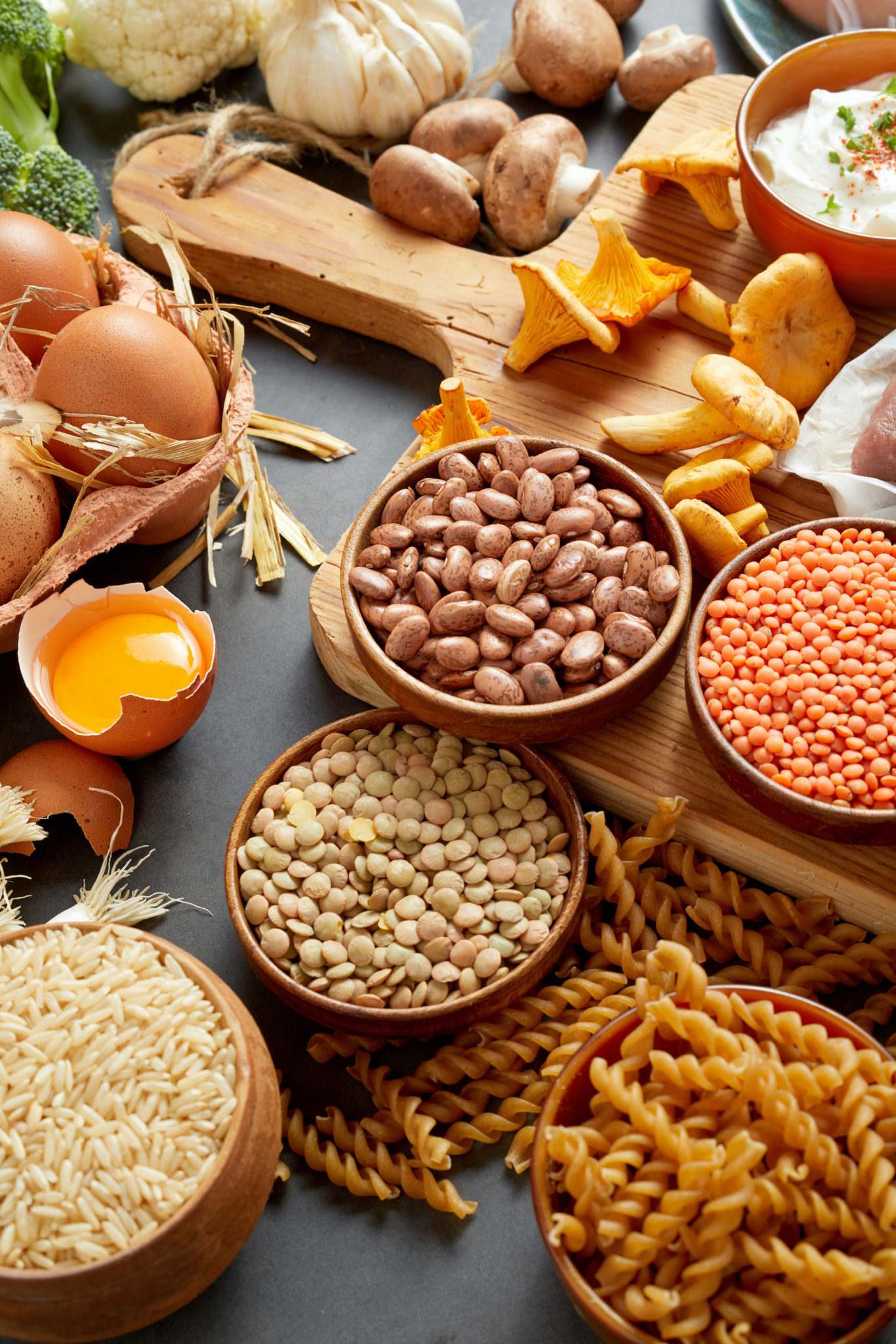
Insects are a promising SUSTAINABLE, SECURE, CLEAN source of high quality animal protein, oils, chitin, nutrients and other bioproducts with a substantially lower environmental footprint than vertebrate livestock. Increased utilization of insects in food rather than vertebrae livestock will significantly reduce human impact on the natural environment, including contribution to climate change, pollution and clean water depletion. The major categories where insects provide most substantial benefits for a sustainable food supply are: 1) efficiency and 2) diversity
EFFICIENCY: Insects are very efficient at biotransformation of feed into edible insect body mass (high feed conversion ratio). Cows consume 8 grams to gain 1 gram in weight, whereas insects require less than two. This is partly due to insects being poikilothermic using less energy for body warmth. Insect production uses less water than vertebrate livestock. This is largely because: 1) insects consume less water and 2) consume less feed which requires irrigation. In fact many insects do not need added water beyond what they consume in their feed. Many species of mealworms can even be farmed without any additional water and on dry feed. Farm raised insects also require very little land and give off low levels of greenhouse gases and ammonia than other. They can also be reared in much higher densities than other animals, providing substantially more protein/biomass output per cubic foot. Insects are also probably the only animal amenable to modularized and vertical farming (and more amenable to automated mechanized farming technologies currently being developed by All Things Bugs LLC!). This means that insects can be produced in cities closer to population centers, and adjacent to food processing facilities–potentially eliminating the need to transport raw insect materials! What’s more, insects are substantially more prolific with shorter life spans than other livestock. A single female cricket can lay up to 1,500 eggs in its 5-6 week lifespan and a single female mealworm can lay over 500 eggs (8-16 weeks), whereas cattle require 4 breeding animals for each animalmarketed. Thus, farm raised insects can be scaled up, and stocks replenished after supply issues, faster than any other animal livestock! Additionally, insects can eat plants, biomass or agricultural byproducts with little or no value, thus not competing with human food supply like other livestock.
BIODIVERSITY: UN FAO says 75% of food comes from only 12 plant, 5 animal species. This dependence on a few species puts world-wide food security at risk! There are over 1 million species of insects described and 4-30 million estimated. UN FAO, others estimate over 2,000 species eaten by as much as 80% of the human population. There are over 900 species of crickets (Family Gryllidae) and 20,000 species of mealworm (Family Tenebrionidae). In fact, benefits of insect diversity in animal production have been tested. Recently, farms experiencing difficulties from densovirus outbreak in Acheta domesticus successfully switched to resistant Gyllodes sigillatus in 1-3 years with minimal difficulty and cost. A diverse food supply is a SECURE food supply!
Insects are also a cleaner source of protein with a much lower risk of pathogens than traditional livestock. Insect farms are typically very clean, modular, indoor facilities. Several research articles report that the human pathogen loads in farmed insects are very low and standard foodborne pathogens appear to be absent. Additionally, insects are biologically more separated from humans than vertebrate livestock, so risk of insect viral pathogen or parasite jumping to humans is exceedingly low.
As part of All Things Bugs LLC’s cutting-edge research, they are looking beyond earth to support long-term human populations on the moon, Mars, and other places in the future. Insects make the ideal animal protein source and livestock for use in outer space. In fact, for the foreseeable future, insects are the only animals that are feasible to consider for non-earth environments according to current research. They are small, can be grown modularly, do not harbor most human diseases, are high in protein and other nutrients, and are extremely efficient with feed and water utilization. As mentioned above, they are highly prolific with rapid lifecycles so can be scaled up and replenished faster than any other livestock–critical for the new frontier of space colonization! What’s more, All Things Bugs LLC’s research to develop insect farming for space also contributes to food sustainability on earth as the technologies will be easily adapted to earth agriculture

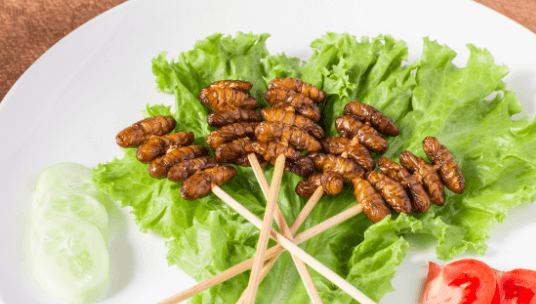
The consumption of insects as food, sometimes referred to as “entomophagy”, is accepted and practiced by many cultures around the world.
As many as 3,071 ethnic groups in 130 countries utilize insects as essential elements in their diets.
In fact, it is estimated that as much as 80% of the world’s population consumes insects, and 100% do so unintentionally. The recent explosion of the protein market, along with consumer interest in healthier and more sustainable protein sources, a new industry has emerged to develop insect based foods–and All Things Bugs LLC is leading the way
Read More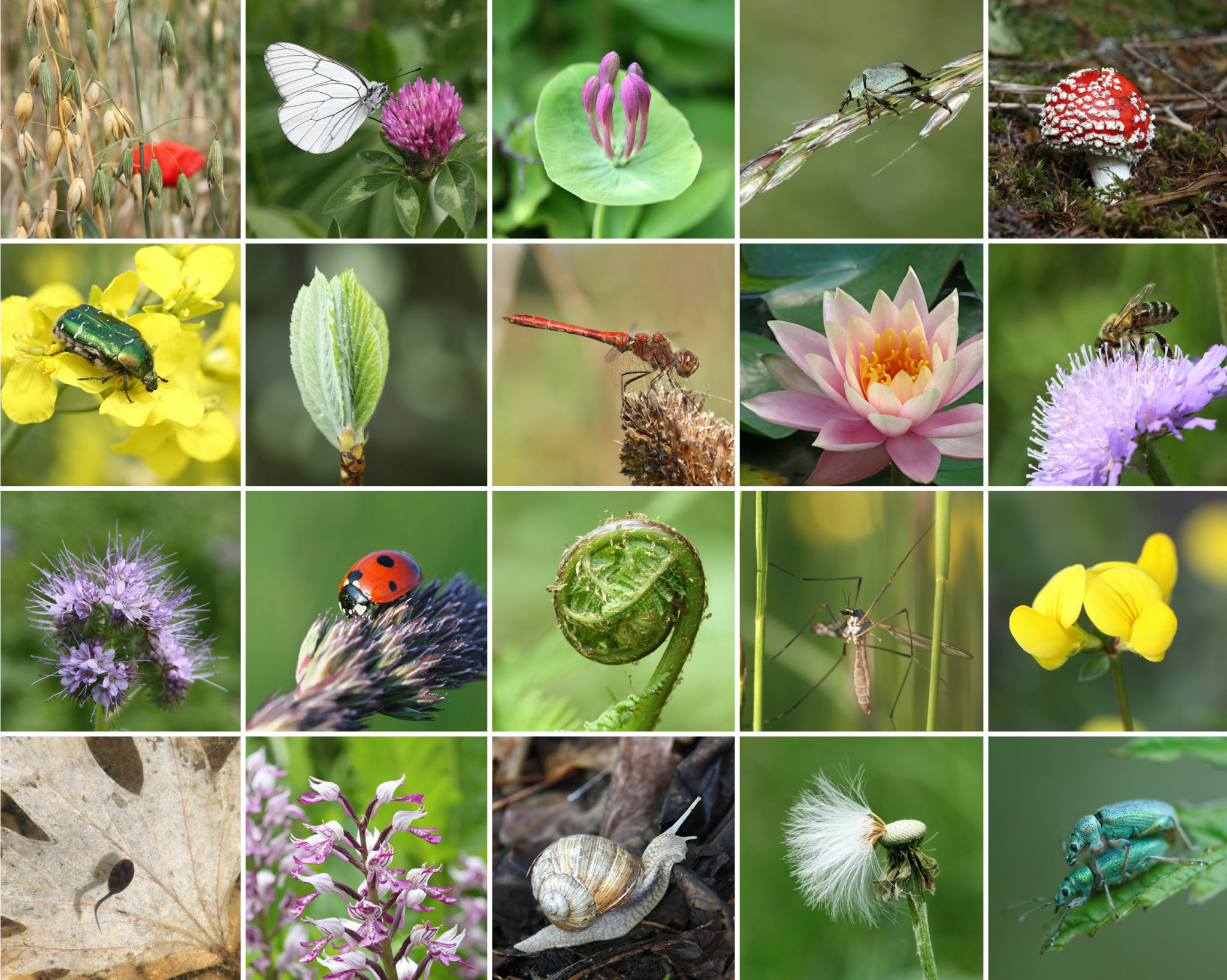
The UN FAO (United Nations Food and Agricultural Organization) and others estimate that there are at least 1,000-2,000 edible insect species currently known to be consumed around the world. There are over 1 million identified and 4-30 million total estimated species of insects on Earth, inhabiting every ecological niche outside of the ocean. There could be an insect species ideal for every protein and agricultural environment on earth and beyond! With this diversity and their collective reproductive capacity, they are a much safer bet for future food security than are vertebrate animals.
Development of more diversity in animal livestock/protein sources is critical to future food security.
Read More
Farm raised insects, such as crickets and mealworms, are grown at highly sanitized indoor farms where common foodborne pathogens are not typically found. Researchers have reported Salmonella , Staph , E. Coli, and Listeria were not found in commercially farmed insects including: Super worms, Mealworms, Wax worms, and House Crickets. The apparent paucity of foodborne pathogens is likely due to: 1) indoor farm hygiene and 2) insect biology. Producing insects indoors allows tight control from inputs through processing including rigorous cleaning of surfaces, preventing contact with soil and other external contaminants and the quality of feed inputs. Insects are farmed without hormones, steroids, or antibiotics unlike other livestock! Insect biology also likely prevents foodborne pathogens from surviving in their growth chamber.
Read More
Published by industry thought leader Dr. Aaron T. Dosey, “Insects as Sustainable Food Ingredients” is THE foundational textbook for this new industry and field of science. The book provides a solid introduction including: history / cultural use of insects as food, comprehensive list of edible species, nutritional value, industry summary, farming technologies, regulatory/ food safety considerations and research on insects as food allergens.

In addition to the fundamentals of insects being a highly sustainable, nutritious, and highly productive/efficient to farm/produce, they are also very amenable to many processing techniques, and insect-based ingredients have great functionality for many types of food products–as All Things Bugs LLC’s product development research demonstrates.
We have completed several successful research projects in insect-based food product development and patented our insect powder manufacturing process. While we continue to innovate, we have already developed multiple products including: puffed extruded snacks, cereals, pastas, tortillas, baked goods and insect based meats–several ready for market today!
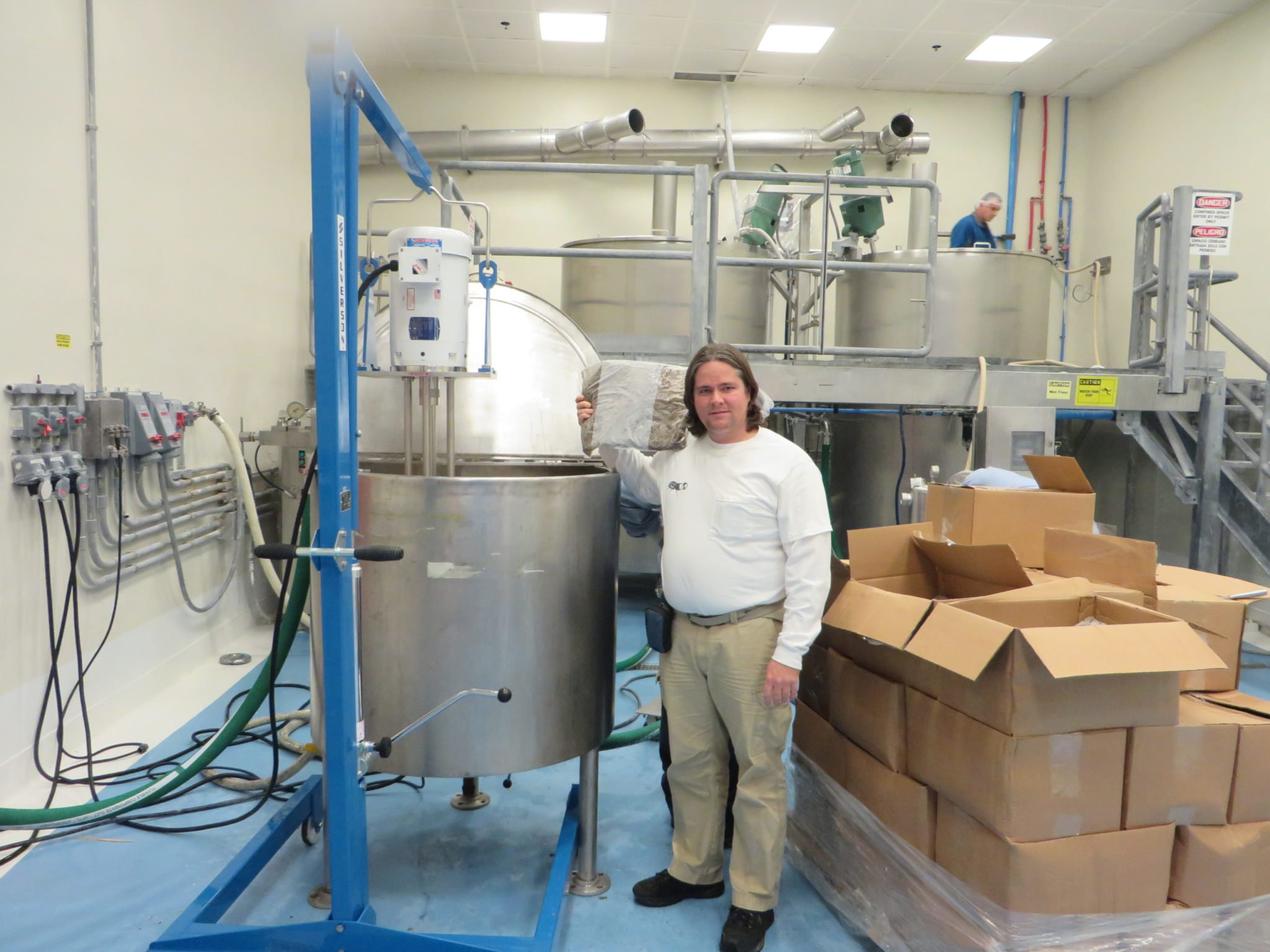
As the world’s first wholesaler of insect-based food ingredients, All Things Bugs LLC prides itself in its patented insect processing technology and Griopro® cricket powder. When Dr. Dossey founded the company in 2011, others were roasting insects then grinding them into a dark, course powder -cooked meal. It was clear there must be a better way – which Dr. Dossey developed: Insect Spray Drying. It is more scalable, cost effective and uses less heat than roasting insects–maintaining quality and functionality. Our powder is finer in texture, lighter
colored, has a milder flavor and aroma and longer shelf-life than others. We continue to innovate developing ingredients from species such as meal worms, wax worms and others as well as protein extracts, oils and other precision ingredients
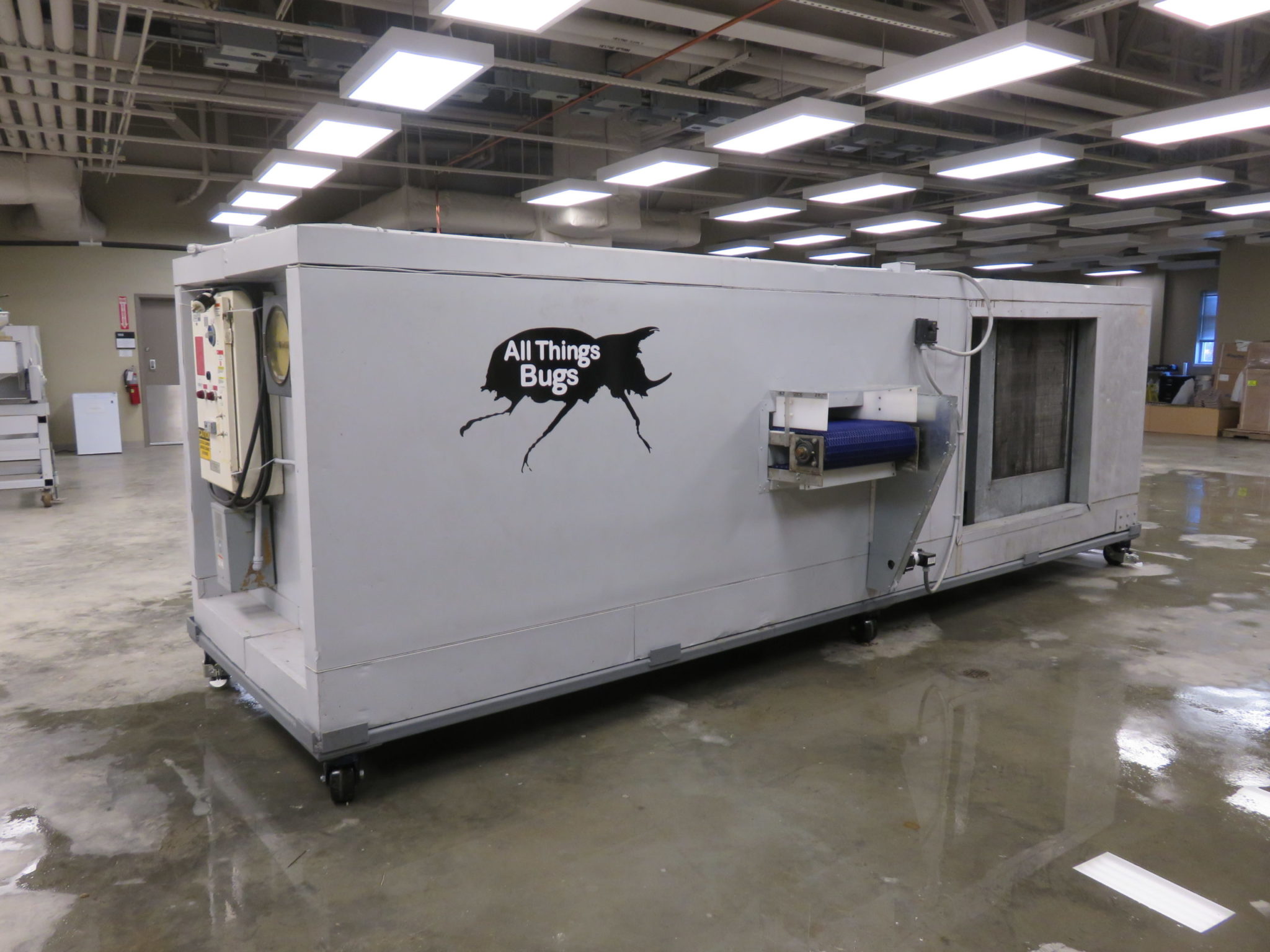
Clearly insects offer substantial benefits for sustainable food production. Why isn’t the industry adapting insect protein faster? 1) PRICE, 2) SCALE and 3) LACK OF INNOVATION. Food manufacturers say insect protein PRICE is simply too high. Although insects are biologically the most efficient animals, and costs should be cheaper than other livestock, small scale and outdated manual farming methodologies are keeping prices high, holding the industry back. Small scale keeps prices high due to economies of scale and base cost effects on unit pricing. All Things Bugs LLC is developing automated mechanized insect farming technologies (for crickets, mealworms and others) to solve this problem! Automation, mechanization, and overall efficiency will rapidly drive down insect farming cost. When innovation is applied at the level of other agricultural products insects will be the lowest cost protein on earth. We are developing solutions for every stage of insect production–egg collection, growth chambers, feeding/watering, feed formulations, harvesting, freezing and processing! We have technologies for harvesting and freezing and improved plant-based feed available for market TODAY and are developing full insect farm automation–several new technologies coming online very soon
Read More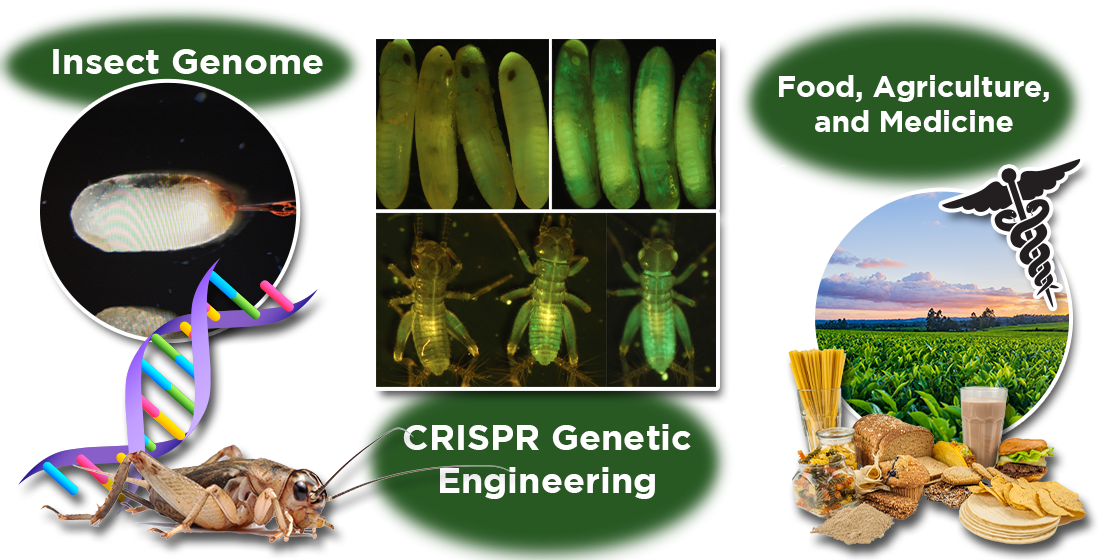
All Things Bugs LLC is developing genetically engineered insects for production of essential nutrients, food, protein and other valuable biomaterials. Insects have substantial potential far beyond simply being a natural source of protein. A unique and potentially transformative opportunity exists when genetic engineering tools are applied. Insects are the best animals for genetic engineering and bioproduction as they are small, grow rapidly, prolific and can be easily manipulated in the laboratory for rapid efficient genetic modification and phenotypic optimization analysis. All Things Bugs LLC is one of very few top leading firms and pioneers leading this exciting new field. Utilizing technologies such as CRISPR/Cas9, we are increasing their nutritional content (more vitamins, higher protein and other nutrients) and making them more disease resistant, hardy and productive. Farm-raised insects with an improved amino-acid profile, resistant to insect viral pathogens and more nutritionally dense with higher levels of vitamins and minerals, can be a game changer in world food security. What’s more, we are looking at insects far beyond their use as food and feed to developing genetic lines for production of even more valuable materials such as vaccines, antibiotics, pharmaceuticals, flavors, pigments and beyond
Read MoreGrioPro® is the highest quality and most functional insect – based ingredient on the market. It has the lightest color and mildest aroma and flavor of any insect protein available. Developed by award winning Ph.D. Biochemist Dr. Aaron T. Dossey, All Things Bugs LLC’s patented process produces a very fine, dry, and flowable powder with an extended shelf-life.
Its fine particle size allows the powder to blend well with other ingredients for may food applications and recipes. The smooth texture prevents consumers from noticing any trace of insect particulates. Griopro’s®light color and mild aroma and flavor make it an ideal nutritious protein ingredient for thousands of food product applications! In fact, Griopro®is the only insect product that works for sensitive applications such as protein shakes, pasta, meat alternatives, baked goods and extruded snacks and cereals.
VIEW NUTRITIONAL CONTENT